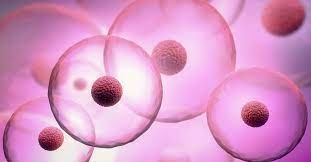Humans are multicellular organisms having more than 200 different types of cells with a count of up to 30 trillion cells in the body. Almost 80% of the body is made of cells and constitutes up to 4% of the body mass. All the cells have different structures, sizes, and shapes and contain different organelles. They perform their respective functions in the body and each of them plays a vital role in the proper functioning of the body. Similarly, their lifespan is also different from each other. Few cells live along with us our entire life while few have a lifespan of 12-50 years and few live only for 3-120 days.
Cells are formed or are given birth inside the body in various ways. One of them is mitosis where the parent cell divides itself into daughter cells. The other way is to grow through stem cells. Similarly, there are many ways through which cells are given birth inside the body. Cells need to die after a certain period of time so as to balance the upswing of the growth of new cells.
Scientists at Weizmann Institute of Science in Rehovot, Israel have completed research on the lifespan of the cells and have stated that in around 80 to 100 days all the 30 trillion cells will perish and a new set of cells will grow. The scientists through this study have discovered the duration within which the cells will perish and be replaced with new cells. On average, 330 billion cells will be replaced every day and make up to 30 trillion for 80 days.
This research does not include the replacement of cells during menstruation and negligible percentages are also not included. The body also contains bacteria and viruses among which few can cause illness to the body while others just coexist with us. These are the few components that the study does not include for replacement or loss in the body.
These are the normal functioning of the body and are a phenomenon that takes place every day in our body. The research only defines the time of the growth and replacement of cells in our body.

